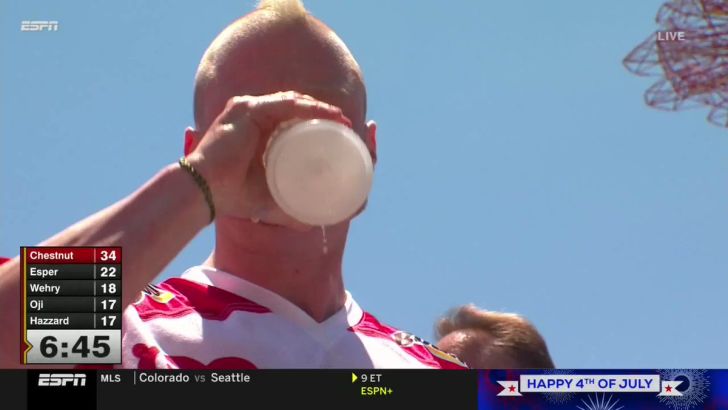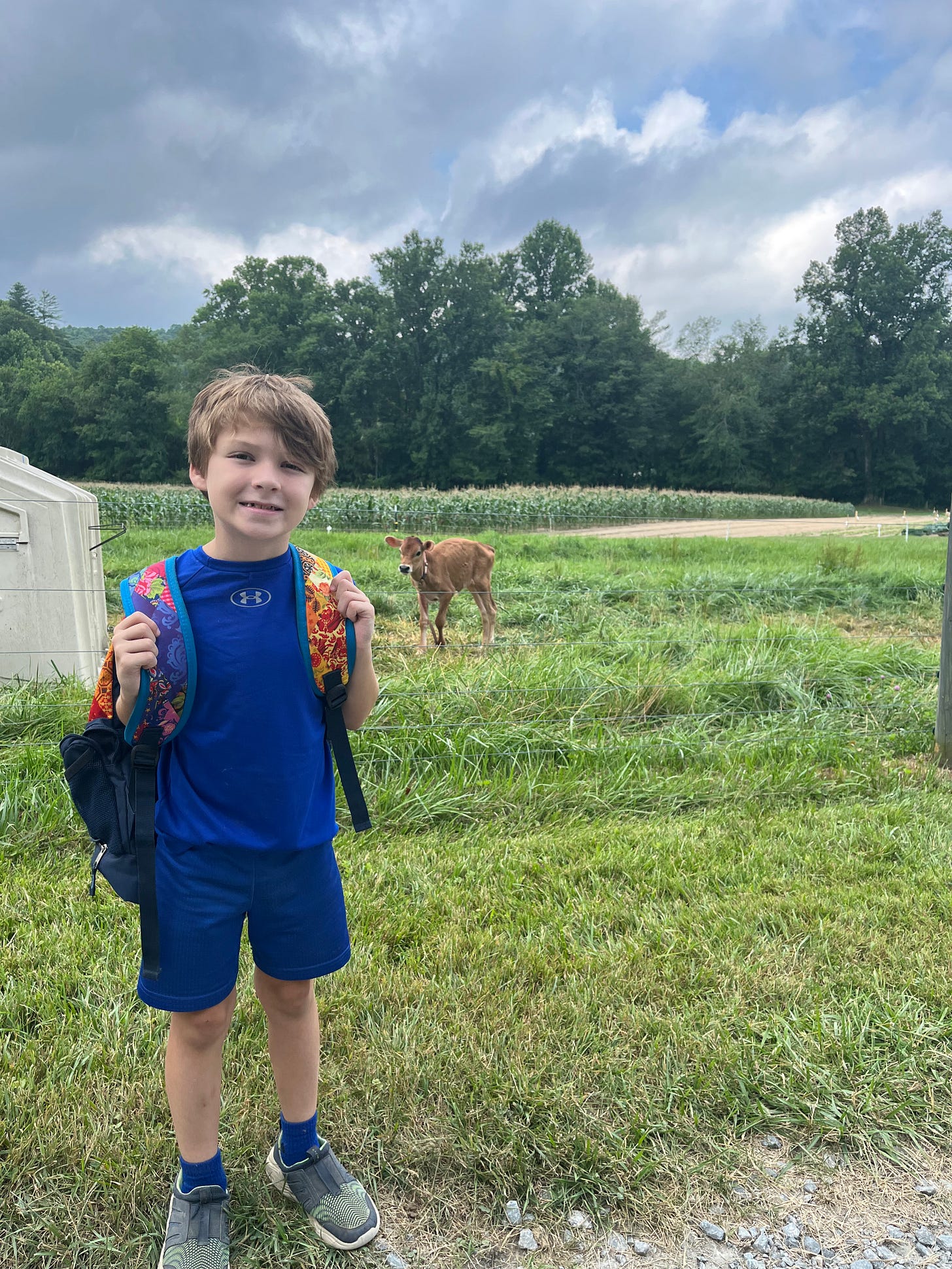Here is a button where you can subscribe to this newsletter now, if you have not previously done so. I do hope that you enjoy it.
My older son William’s baseball season just ended. As he grows up, it’s starting to occur to him—earlier than it occurred to me, all told—that his father was once his age and did a lot of the same things he’s doing. He asked me the other day what my favorite St. Louis Cardinals team ever was, and after thinking it over between the 1982, 1996, 2001, and 2004 teams, I ultimately landed on the 1985 “Heck of a Year” Cardinals. (Also known as the “Go Crazy, Folks” Cardinals.) I then rattled off that team’s lineup, grabbed a bat and did the batting stance for every player, things I will be able to do from memory on my deathbed.
William’s eyes got big. “You were my age for that team,” he said. “Does that mean I’ll remember this year’s Cardinals when I’m an adult?” Smart kid. I told him yes: I’d cursed him with this just like my dad cursed me.
William also likes that, when I played baseball, I was a catcher. He’s lefthanded and thus will (somewhat unfairly) never play catcher, so, thusly, he’s fascinated with the position. He asked me what kind of catcher I was. Did I have a strong arm? Was I good at blocking balls in the dirt? Could I catch knuckleballs? (No, yes, and yes.) And then he asked me: “What was your favorite part of catching?”
I had a ready answer. My favorite part of catching was when there was a play at the plate, and the runner was barreling down the line, and I was blocking the plate while waiting for the ball. Then it came: I’d catch the ball and secure it with my right hand just before the runner came plowing into me to try to knock it out. The best part wasn’t the out, and it certainly wasn’t the collision. It was getting up off the ground, seeing that I still had the ball in my hand, hearing the umpire call the runner out, showing the ball to the runner, doing a sort of snarl-smile and then dramatically letting the ball fall and drop to the ground. It was victory, hard-earned: I’d taken the runner’s best shot, and I’d held onto the ball. The runner would always grin at me and nod. Worth a shot. Nice play. See you next time. I loved it so much. I still dream of that play.
William looked at me, bewildered. “Wait … why didn’t he just slide?” he said.
William was only two years old when Major League Baseball banned collisions at home plate, the very same sort of collision that had been a part of baseball history since people started playing the sport. When MLB got rid of collisions at home, every youth league did as well, if they hadn’t already. MLB’s decision, which many considered a direct result of a broken leg star catcher Buster Posey suffered during one of these collisions, was highly controversial at the time. Hall of Famer George Brett said, “I don’t like it … I like the collision. It sucks. I like that play.”
I liked that play too. As a catcher, I liked that play. William was baffled that such a play—where you literally just fling your body at full speed at a defenseless target—had ever been allowed to exist. To prove that it was real, we watched a video of “Most Violent Home Plate Collisions.”
He couldn’t believe what he was seeing. “They let people do that?!” Watching along with him, I couldn’t believe it either. That was only eight years ago. But it felt like decades.
Then, along these same lines, we watched one of the infamous JACKED UP! segments on ESPN’s “Monday Night Football,” in which they would compile the most brutal hits of the NFL week, complete with reaction shots of the dazed player wandering around the sidelines, trying to get his bearings after a massive human bashed his brain against his skull.
William turned to me as if he’d just witnessed a series of violent car accidents. Which I guess he sort of had.
“That’s how they used to play football?” he said.
There was a look of horror on his face, like he could not believe what sort of savages we all were. I told him, honesty, that we just didn’t really think about it that much. I had enjoyed that “Jacked Up” segment back in the day. We didn’t see anything wrong with it. It was sponsored by Dodge!
“That is crazy,” he said, shaking his head. “You guys were all crazy.”
I could not disagree.
***************
When my father used to take me to Cardinals games at the old Busch Stadium, when I was around the same age as William, he would put me on the back of his old Triumph motorcycle and tell me to “hold on.”
It was—still is—a two-hour drive to downtown St. Louis from Mattoon, Illinois, on the freeway, switching from Route 57 to Route 70 in Effingham. There would be the two of us, blazing down the interstate at night, neither of us wearing helmets, with my tiny little wrists and the seams holding my father’s faded jean jacket’s pockets together the only things stopping my 10-year-old body from meeting the asphalt at 75 miles per hour . It was scary—I still catch myself thinking about it sometimes, that sensation of knowing that if I lost concentration for a second and wiped my nose with both my hands at the same time, I’d end up a semi truck’s hood ornament—but I didn’t spend much time fretting about whether it was “proper” or not, whether it was particularly unsafe, or even out of the ordinary. I’m sure my dad didn’t either. The other dads, after all, were doing the same thing. Everybody was. We just didn’t really think about it that much. We didn’t see anything wrong with it.
I, obviously, would not do this to either of my children today, and not just because having a mother as an emergency room nurse has taught me about the inherent insanity of riding a motorcycle. (Hospitals always tell patients in need of organ transplants to try to hold on until spring, when the weather warms up and there will soon be motorcyclists offering up available, and no longer needed, vital bits and pieces of their bodies. Be careful out there, folks.) But this does not make me a better father than my father was, or even a particularly more cautious one. After all, my father would not put either of his grandchildren on the back of a motorcycle like that today either. It was just different then. We didn’t know as much. We didn’t see, couldn’t see, the bigger picture. We had a distinct, and inherent, myopia—we could only see what was right in front of us. This was not a choice. It’s just the way it was.
Fortunately, our scope has expanded today. We have access to more, and, thus, we know more. We can see more. We can look beyond ourselves. We can see parts of the world we had never been able to see. We can have access to someone else’s view of the planet. We can hear people we could not hear before.
And thus we can be different, we can be better—we can progress. We can put on a helmet. We can wear a seat belt. We can not launch our brains at someone else’s brains at full speed. We can slide. We can keep ourselves safe, and we can keep others safe. We can be better.
Unless we choose not to.
This is, after all, supposed to be the point of doing anything. My parents, and their parents, and their parents, they all subscribed to that once-essential American ideal that the world is supposed to better for your kids than it was for you—that their lives should be better than yours were. It was how you knew you were leaving this earth in a better place than you found it. You paid it forward.
There were different routes to this ideal, and certainly there was much disagreement about what “better” really meant. But they were all founded in the idea of progress. It wasn’t just that progress was possible—it was that it was essential. The world got better because it was supposed to get better. And you had an obligation to do your part. For your kids. For everybody’s kids.
One of the most disorienting aspects of the last few years of American life—and, all told, the last 10 days—is the sense that all this progress, all this forward movement, all this faith in the continued evolution of this experiment, a progress that I and many others foolishly believed would continue, had to continue, isn’t just being halted, but reversed. It is difficult to wrap one’s mind around the idea that many people—not most people, but many of the most powerful and craven people—not only live in that myopia but in fact crave it. Something has shifted, and that idea that every generation should have it better than the next has turned into, for many, “every generation should return to a time when my world and my view of it was so closed off that I can pretend it was in fact the perfect time.” The whole point of living, of advancing through time, is to continue to learn about the world, and yourself, and people you don’t know yet but would absolutely love if you did. It is not to regress. It is not to draw inward. It is not make things worse. It is not to hide.
I do not know how it got to this point, how we have erased so much, so fast. But it’s like we are desperately hanging onto that jacket, as tight as we can, wishing we had a helmet, careening dangerously through the dark, into the unknown. Those driving us do not know where they are going, and don’t seem to mind. It’s supposed to be better than this, for you, for me, for them, for all of us. We once wanted to leave the world better for our children. Now we just have to count on them being able to fix it.
Here is a numerical breakdown of all the things I wrote this week, in order of what I believe to be their quality.
The Thrill of a Potential Yankees-Mets World Series, New York. It would be a blast, I think, much better than the last Subway Series.
How Bryce Harper’s Injury Changes the 2022 Season Moving Forward, MLB.com. Few injuries affect quite this much.
Tom Hanks Movies, Ranked and Updated, Vulture. Updated with Elvis.
So, Are We Going to Make It To Our Semiquincentennial? Medium. Sorta up in the air?
Your June MLB All-Stars, MLB.com. And now we’re halfway through the year.
So You’ve Made It Through Covid-19. Now What? Medium. OK, so now I’ve made it through Covid-19, anyway.
The Thirty: Under the Radar All-Star Picks, MLB.com. As you can tell, I enjoy All-Star business.
Your Friday Five, Medium. Five to one, baby, one to five. No one here gets out alive.
PODCASTS
Grierson & Leitch, we discuss Elvis, The Black Phone and the undeniably hilarious (and quite welcome) Beavis and Butt-head Do the Universe.
Seeing Red, Bernie and I talk about a team that’s got some issues right now.
Waitin' Since Last Saturday, no show this week.
LONG STORY YOU SHOULD READ THIS MORNING … OF THE WEEK
“America’s Long Lost Weekend,” Walter Shapiro, The New Republic. You know how things felt so much better from 1989-2001? This piece looks at what we squandered during that time. Been thinking a lot about this concept lately.
Oh, and if you want to know what I think about college football expansion, The Athletic’s Chris Vannini sums up my thoughts precisely.
ONGOING LETTER-WRITING PROJECT!
This is your reminder that if you write me a letter and put it in the mail, I will respond to it with a letter of my own, and send that letter right to you! It really happens! Hundreds of satisfied customers!
(I know I am behind on these, but I’m catching up next week.)
Write me at:
Will Leitch
P.O. Box 48
Athens GA 30603
CURRENTLY LISTENING TO
“Turn It On,” Sleater-Kinney. Early Sleater-Kinney is hitting a lot of my needed spots lately.
Remember to listen to The Official Will Leitch Newsletter Spotify Playlist, featuring every song ever mentioned in this section.
The children are back from camp. They saw cows there.
Have a great weekend, all, and a great Fourth, if you can.
And remember: Eat your hot dogs with the efficiency of one of my paragraphs.
Best,
Will









Used to play baseball? There are adult leagues (baseball, not softball) all over the country. Find one and start playing again! I've been doing so for 15 years now! Ton of fun! I have a game tonight.
Such insightful writing, you really have a gift. I appreciate your newsletters.
Is it really that hard to catch a knuckleball? I've never understood how MLB catchers were always befuddled trying receive a ball that doesn't spin. I'm not even sure there are many guys who even throw it anymore.